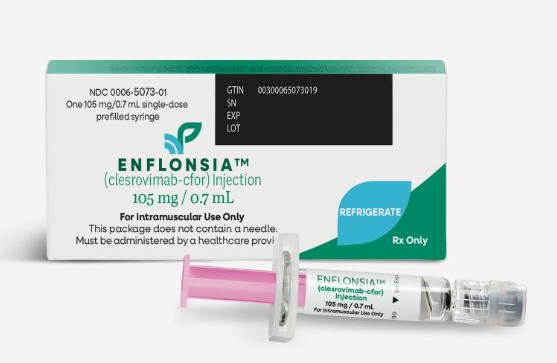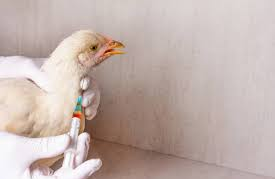- The CDC recommended in 2011 that pregnant women receive one dose of Tdap after 20 weeks to protect newborn from pertussis.
- In 2012, the recommendation was extended to all women during every pregnancy.
- Tdaps is classified by the FDA as a Class C pregnancy drug.
The Tdap vaccine is a combination of the Tetanus, Diphtheria and Pertussis (whooping cough) vaccines into a single shot. In October 2011, the Advisory Committee on Immunization Practices (ACIP) at the Centers for Disease Control (CDC) put forth a new recommendation for pregnant women to receive one dose of Tdap after 20 weeks gestation in an effort to prevent pertussis (whooping cough) in newborn infants.1 The federal recommendation was made after reported whooping cough outbreaks in several states in 2010 and 2011.2 3
TdaP Vaccine Not Studied in Pregnant Women Before Licensure
In making the Tdap pregnancy recommendation in 2011, the CDC’s vaccine advisory committee admitted that:
In prelicensure evaluations, the safety of administering a booster dose of Tdap to pregnant women was not studied. Because information on use of Tdap in pregnant women was lacking, both manufacturers of Tdap [Sanofi Pasteur and GlaxoSmithKline] established pregnancy registries to collect information and pregnancy outcomes from pregnant women vaccinated with Tdap… ACIP concluded that available data from these studies did not suggest any elevated frequency or unusual patterns of adverse events in pregnant women who received Tdap and that the few serious adverse events reported were unlikely to have been caused by the vaccine.
According to the ACIP in 2011, giving Tdap vaccine to pregnant women who had not previously gotten a Tdap booster would allow them to transfer vaccine induced pertussis anti-bodies to the fetus through the placenta, theoretically providing protection to newborns until they receive the first dose of DTaP vaccine at two months old.
CDC Does Not Know If Policy Will Protect Newborns
However, in October 2012, the ACIP voted to recommend the Tdap vaccine be given to all women during every pregnancy even to those who had previously gotten a TdaP booster shot.4 ACIP used a lot of qualifying words like “is expected to” and “likely providing” and “less likely to become infected” when making the 2012 recommendation:
Vaccination of women with Tdap during pregnancy is expected to provide some protection to infants from pertussis until they are old enough to be vaccinated themselves. Tdap given to pregnant women will stimulate the development of maternal antipertussis antibodies, which will pass through the placenta, likely providing the newborn with protection against pertussis in early life, and will protect the mother from pertussis around the time of delivery, making her less likely to become infected and transmit pertussis to her infant.
The ACIP voted to make the Tdap pregnancy recommendation in 2012 while at the same time admitting that vaccine induced pertussis antibodies confer little or no long-term protection to those who get the vaccine. Again using qualifying language such as “likely confer protection” and “might prevent pertussis,” federal vaccine policymakers expressed ignorance about how the newborn immune system functions and whether or not the Tdap pregnancy vaccination policy would be effective in preventing or modifying the severity of disease complications in newborns.
The effectiveness and optimal concentration of maternal antipertussis antibodies in newborns are not yet known, but high levels of antibodies in the first weeks after birth likely confer protection and might prevent pertussis or modify disease severity. Studies on the persistence of antipertussis antibodies following a dose of Tdap show antibody levels in healthy, nonpregnant adults peak during the first month after vaccination, with substantial antibody decay after 1 year.
Where is the Science?
Before ACIP made the sweeping Tdap pregnancy recommendation in 2012, the FDA and CDC did not require vaccine manufacturers to conduct large prospective, case controlled clinical studies or provide adequate biological mechanism evidence demonstrating the safety and effectiveness of the Tdap universal use policy for pregnant women.
A pregnant woman might well ask: Is there enough scientific evidence that Tdap vaccine has been proven safe for me to get during every pregnancy?
It is clear that published data on the safety of Tdap in pregnant women is very limited, beginning with the fact that the Tdap vaccine was licensed in the United States without being tested in pregnant women. There is almost no data on the inflammatory and other biological effects on pregnancy and newborn health outcomes.5
Tdap Vaccine: A Class C Pregnancy Drug
The Food and Drug Administration (FDA) has classified Tdap as a Class C pregnancy drug. According to the Department of Health and Human Services, Class C drugs are those in which “Animal reproduction studies have shown an adverse effect on fetus and there are no adequate and well-controlled studies in humans, but potential benefits may warrant use of drug in pregnant women despite potential risks.”6
Other Class C drugs known to have adverse effects on fetuses are high blood pressure drugs, pain relievers, anti-convulsants, corticosteroids and anti-depressant medications.7 For example, studies have shown that the use of selective serontonin reuptake inhibitors (SSRIs) during pregnancy to treat depression increases the risk of birth defects in the heart, lungs, neural tubes, cranium and palate of the fetus and may increase blood pressure in pregnant women leading to preeclampsia, which can threaten the lives of both mother and child.8 9 10
Class C drugs in pregnant women have been associated with significant, sometimes life threatening side effects. The fact that Tdap is a Class C pregnancy drug raises serious questions about the safety and necessity of the CDC’s recommendation for Tdap to be given to all pregnant women during every pregnancy.
Continuing Pertussis Vaccine Failures
The CDC’s Tdap universal use pregnancy recommendations in 2011 and 2012 also grew out of the failure of a pertussis control strategy known as “cocooning.” The theory of cocooning is that if parents and everyone else coming in close contact with a newborn infant have gotten pertussis containing vaccines, the infant will not get pertussis.11 The ACIP now acknowledges using pertussis containing vaccines cannot effectively protect newborns from whooping cough and its complications, including death.12
In 2012, Australia ended its whooping cough vaccine cocooning program that offered free Tdap shots to parents because it was ineffective in protecting newborns from pertussis.13 Australia’s national and independent Pharmaceutical Benefits Advisory Committee (PBAC) determined there was no clinical effectiveness of cocooning after two pharmaceutical companies submitted Tdap data to the PBAC.
Pertussis cases in vaccinated children and adults are being reported in Vermont, California, Washington and other states, giving additional evidence that CDC multi-dose pertussis vaccine policies are not working.14 15 16 In 2013, FDA researchers published biological mechanism evidence that pertussis-containing vaccines provide only temporary immunity and often do not prevent infection or transmission of infection to others. 17 It is becoming common knowledge that Tdap booster doses cannot effectively control pertussis.18
CDC Promotes Tdap Shots During Pregnancy
Recently, the CDC’s Division of Reproductive Health published a report stating that “With almost one fifth of women not knowing their Tdap vaccination status, there is a widespread need for providers to ensure they are communicating information about recommended vaccinations and to educate all women about the importance of keeping their vaccination status up-to-date and documented, especially reproductive-age women. Health care providers can assist pregnant women by providing specific information about where to obtain Tdap vaccination, or offering to provide the vaccination, and also to write a prescription in case it is needed; additional tools for providers are available.”19
Despite vaccine safety research gaps and well documented failures, the Tdap vaccine continues to be aggressively promoted by public health officials, obstetricians and pediatricians for all women during every pregnancy. It is vitally important that women become fully informed about pertussis and Tdap vaccine before making a decision about whether or not to follow CDC recommendations to get a Tdap shot while pregnant.
References:
1 CDC. Updated Recommendations for Use of Tdap in Pregnant Women and Persons Who Have or Anticipate Having Close Contact with an Infant Aged. Oct. 12, 2011.
2 California Department of Public Health. Whooping Cough Epidemic May Be Worst in 50 Years. June 23, 2010.
3 CDC. Pertussis Epidemic – Washington, 2012. Morbidity and Mortality Weekly Report (MMWR) July 20, 2013.
4 CDC. Updated Recommendations for Use of Tdap in Pregnant Women – ACIP (2012). Centers for Disease Control and Prevention Feb. 22, 2013.
5 Fisher BL. Vaccination During Pregnancy: Is it Safe? NVIC Newsletter Nov. 9, 2013.
6 U.S. Department of Health and Human Services. FDA Pregnancy Categories. Chemical Hazards Emergency Medical Management Jun. 25, 2011.
7 Drugs.com. FDA Pregnancy Categories.
8 Drugwatch. Antidepressants: Birth Defects and Pregnancy. May 20, 2014.
9 DeVera M, Berard A. Antidepressant use during pregnancy and the risk of pregnancy-induced hypertension. British Journal of Clinical Pharmacology 2012; 74(2): 362-369.
10 Barrera D. Concerned mothers united to sue anti-depressant makers. Valley Central News Mar. 15, 2012.
11 Healy C, Rench MA, Maker CJ. Implementation of Cocooning Against Pertussis in a High Risk Population. Clin Infect Dis 2011; 52(2): 157-162.
12 Advisory Committee on Immunization Practices. Updated Recommendations for the Use of Tdap in Pregnant Women and Persons Who Have or Anticipate Having Close Contact with an Infant Aged. Morbidity and Mortality Weekly Report (MMWR) Oct. 21, 2011.
13 News.com.au. States ending free parent whooping vaccine. News.com.au May 8, 2012.
14 Stein A. Vaccinated kids account for 90 percent of whooping cough cases in Vermont. Vermont Digger Oct. 8, 2012.
15 Reese P. Whooping cough vaccine failure for many patients. The Sacramento Bee Feb. 7, 2015.
16 Aleccia J. As whooping cough grows, study finds vaccine wanes. The Seattle Times May 3, 2015.
17 Aleccia J. FDA. FDA Study helps provide an understanding of rising rates of whooping cough and response to vaccination. Press Release: Nov. 27, 2013.
18 Riolo MA, Rohani P. Combating pertussis resurgence: one booster vaccination schedule does not fill all. Proc Natl Acad Sci Jan. 20, 2015.
19 Brown T. Tdap Vaccination During Pregnancy Remains Low. Medscape May 22, 2015.













5 Responses
I am the one lady in millions to have an anaphylactic response to the dtap I have been severely allergic since I was very small its all over my medical charts and I found this article saying its a class c drug im angry as I chose not to have it due to my allergy my ob gave it to me knowing well im allergic to find out it hasn’t been tested on humans just animals. I am furious it almost killed me and almost cost me my daughter thanks a lot cdc thanks for not protecting me or my child
So sorry!
Please watch Candace Owens from the Daily Wire or on YouTube “A Shot in the Dark” a new series about all of these vaccines.
God Bless You
This is where MY fear started — Finding out my DIL got the Dtap and Flu shot same visit – and then announced grandparents had to get also per her OB or not see the baby for 2 mos — I replied with needing to having to discuss this given “family history” — I am blown away by the lack of questioning on the doctors part as to NOT asking about “family history first” – regardless of pro or anti vaxx this plays a huge role in the decision making — I too was “born” with allergies my entire life – as infant had to have goats milk (cow milk allergy) then developed respiratory allergies thru most of my life and then latex and msg poppy sufates etc….AND my dad died from penicillin shock when I was a teen, and my brother had reaction from WC vaccine and almost died — so the history is there for possible pre disposition — and that baby (my grandson to be) is part me genetically — I am so scared ! Every other day I am asking “is he still moving” — my son knows how I feel but we have not wanted to stress out my DIL until “necessary”
I am so sorry! I too have family history of seizures and more. I was able to stop the vaccine madness for my 4 daughters who are happy healthy and ages 36, 33, 31 and 21. It was a fight but worth every battle and tear.
Please watch Candace Owens from the Daily Wire or on YouTube “A Shot in the Dark” a new series about all of these vaccines.
God Bless You
Please, we need more information out there about this DTAP VACCINE for Pregnant Women!!!!
You can’t find anything bad about it on any search engine (Google, Firefox, DuckDuckGo, MSN etc) which right there shows you how badly our media is censored.
CANDACE OWENS has amazing information out there right now called “A Shot In The Dark” some are free and some are on a monthly subscription but totally worth the $12.00 then cancel to watch all of the segments on Daily Wire
God Bless You All
They Bullied my Daughter into getting this yesterday, she’s only 31 weeks along and I’m so angry!!!!
No wonder there are so many preemie births than ever before!!!!